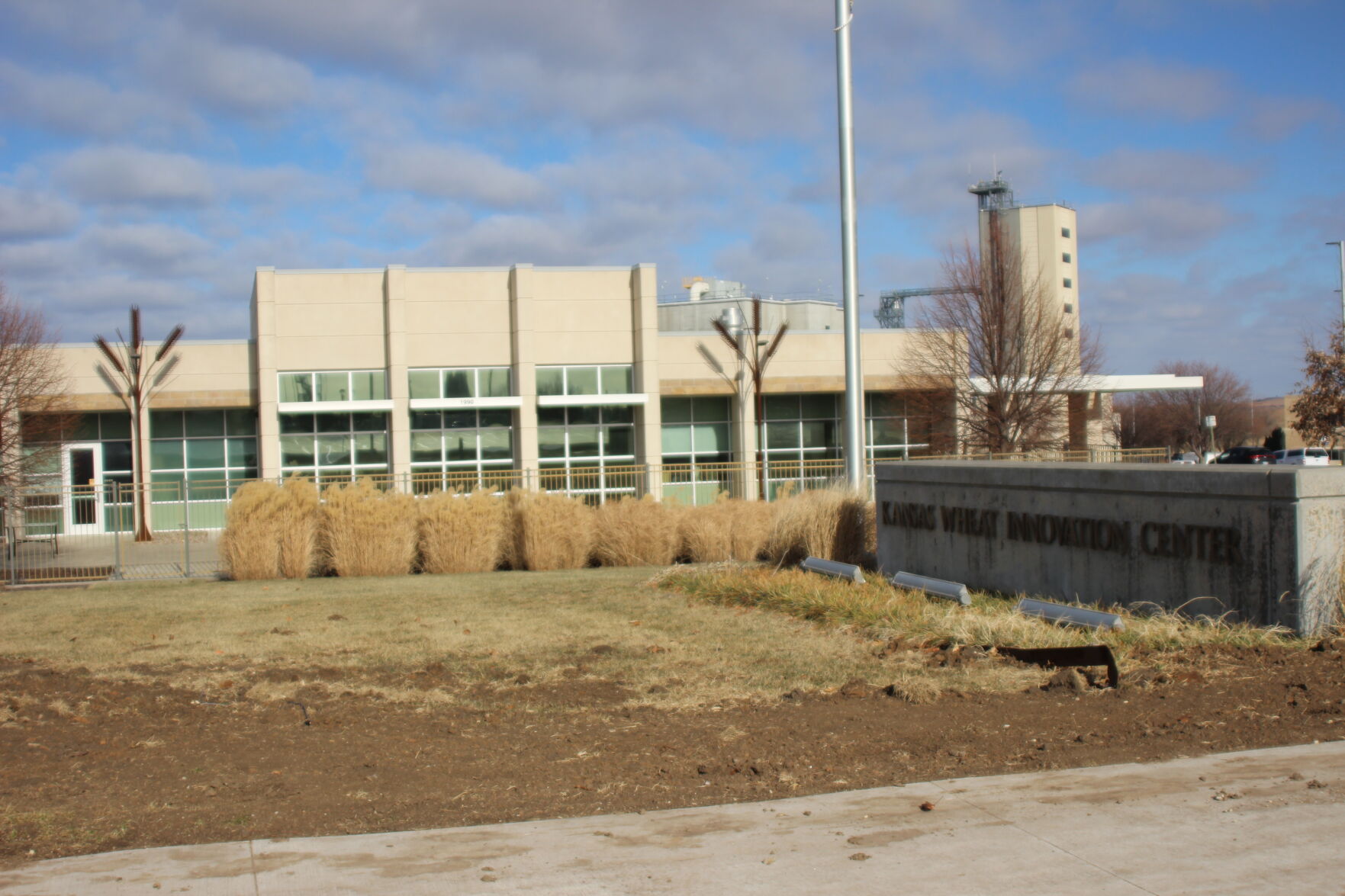Fields Forward, a project of the Kansas Wheat Commission Research Foundation, reached its $4 million campaign goal to research a sustainable wheat future and hosted a celebration thanking donors on Dec. 15.
Tammy McClellan, Plainville, Kansas, manager of donor relations for the fund drive, said the campaign paralleled what her husband, Mike, had gone through with the challenges of events over which there is no control. When the $4 million campaign was to begin in March 2020, the country was beginning to shut down as a result of the COVID-19 pandemic. That meant a slow campaign start but supporters stayed optimistic.
Mike’s father, the late Bob McClellan, believed strongly in the importance of the Kansas Wheat Innovation Center because the research would improve the quality and yield that growers needed so they could earn more money and improve profitability.
She encouraged those in attendance to think about the future as they go about their everyday lives.
“What will your legacy look like in this world?” she said.
Ron Suppes, a Dighton, Kansas, wheat grower, recognized the successful campaign by showing a light bulb filled with wheat kernels. He did that as a way to show people the importance of shining a light on the future. Suppes, the chairman of the Wheat Commission Research Foundation, continues to be impressed when he sees the accomplishments of visionaries who believed in supporting and growing the wheat industry.
“This includes all those who dreamed before us but who are no longer here with us,” he said.
The legacy of wheat growers is they have been willing to keep investing in sustainable and regenerative practices, and wheat has proven to be a champion for doing both and being a profitable crop for farmers, he said.
He also encouraged growers to take time from busy schedules to tour the innovation center and to continue to support the mission of research.
Guest speaker Gene Taylor, director of athletics at Kansas State University, talked about the success of the Big 12 champion football team and introduced several players who had agricultural backgrounds. Taylor also is a fan of wheat research and what it means to feeding the world.
Taylor has personally visited the Kansas Wheat Innovation Center and the International Grains Program since he arrived in Manhattan in April 2017. Taylor was the athletic director at North Dakota State University before being hired by K-State. While at NDSU he had several friends in the agronomy program who had spoken highly of K-State’s research and had encouraged him to see the innovation center and the IGP.
He said the work by the industry is also the result of a committed team of researchers, support staff, donors and farmers. He likened it to the success of a football team and other successful sports programs that are looking for student-athletes who are willing to work hard and put their team above personal aspirations.
Taylor said K-State football coach Chris Klieman stresses a culture of a player-led team as the best way to achieve success. Taylor said the mindset can apply other vocations including wheat production.
“There is big intersection among academics, athletics and agriculture,” he said.
The work ethic of students who grew up with an agricultural background is well known at K-State and similar universities, and those students help set the tone about the importance of hard work and putting a team first.
“All of our coaches are looking for right people to be the right fit in the locker room,” Taylor said.
The event was an opportunity to showcase the Kansas Wheat Innovation Center in Manhattan, a 48,000-square foot facility that was built for $15 million in 2012. A video about the role of research and genetics in feeding the world was shown in the International Grains Program conference center. Event-goers could go on a tour of the innovation center.
Aaron Harries, vice president of research and operations at Kansas Wheat, said it was appropriate the campaign completion came on the 10th anniversary of the wheat innovation center—a commitment by farmers and growers to improve the crop in terms of yield and quality for bakers and millers. The center houses 10,000 strains of ancient wheat grasses in the Wheat Genetics Resource Center. It is the second largest depository in the world only behind the International Maize and Wheat Improvement Center, also known as CIMMYT, in Mexico, which was established by the late agronomist and researcher Norman Borlaug.
Gary Millershaski, chairman of the Kansas Wheat Commission, said the working relationship among the partners, including K-State, private and public institutions has few peers in terms of innovation that helps farmers. As he gave an invocation he asked people to pray for rain.
He then thanked the International Grains Program for its innovation and partnership.
“All of this was built by farmers through the checkoff,” Millershaski said as he looked upon the crowd that included grain producers, researchers, K-State faculty and donors.
Justin Gilpin, CEO of Kansas Wheat, said the innovation center was the result of growers, past and present, who had a “think big” mentality that will carry the wheat industry into the future. In the past 10 years the center has had over 10,000 visitors. He also thanked the public and private partnerships and leadership of Kansas Wheat Commissioners and to producers who are committed to improving yield and quality.
Dave Bergmeier can be reached at 620-227-1822 or [email protected].



